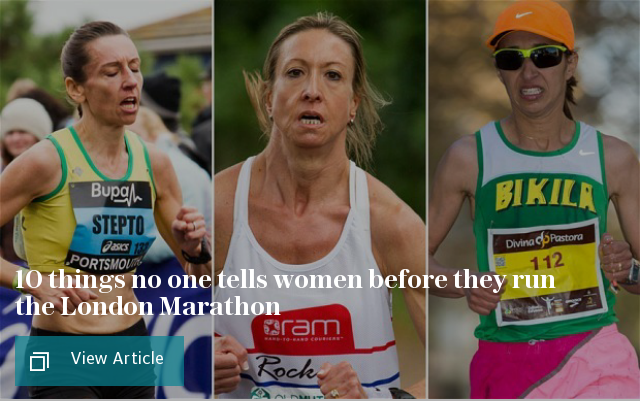Avoid 'gimmick' recovery treatments, sleep is best post-Marathon cure, experts say
Marathon runners are wasting their money on “gimmick” recovery treatments, researchers have warned as a new study shows extra sleep is the best post-race cure.
Experts have pointed to an increase in the marketing and uptake of expensive regimes such cold water immersion and cryotherapy, as well as a range of designer kit, for which there is little justifying evidence.
Instead, research undertaken in Australia suggests runners can recover fastest by sleeping an extra one to two hours a night in the aftermath of a race.
The warning comes as more than 40,000 runners prepare to take part in what could be the hottest London Marathon on record, with event organisers advising amateur athletes to abandon their personal best attempts unless they have trained in comparably high temperatures.
Running for 26.2 miles causes significant muscle cell damage, skeletal strain and brings the immune system low, among other stresses to the body.
The new research by Flinders University in Adelaide, published in the journal Sports Med, reviewed 10 different studies across a range of sports.
It noted that the optimal conditions for cell growth and recovery occur during slow wave sleep, more commonly referred to as deep sleep, with reduced sleep duration contributing to an inability to break down cells required for future repair and growth.

While between seven and nine hours of sleep is generally recommended for healthy adults, the study suggests that nine or 10 is required for athletes following a gruelling race.
Tom Goom, a researcher and practising physiotherapist who has advised the Cancer Research UK Marathon team, told The Sunday Telegraph: “There is quite a growing body of evidence that quality sleep is the best form of recovery - it’s free and easy.
“The high-tech stuff is often very faddy but not evidence-based.”
He said the current vogue among runners for treatments such as ice baths and cryotherapy, as well as multiple sessions of ultrasound, were due in part to opportunistic marketing as well as a poor grasp of the current science by some high street physiotherapists.
Last year a study by Middlesex University found that whole-body cryotherapy (WBC), where athletes immerse themselves in air as low as 160C, was no more effective than a placebo, and was less effective than cold water immersion, also known as ice baths.
Ice baths themselves have also been criticised, with research in 2016 indicating they do virtually nothing to reduce inflammation after intensive exercise.
“The marketing for this kind of thing is increasing,” said Mr Goom.
“If you show people something new and technological then it’s irresistible, but it’s really hard work just to get them to sleep a bit more.”
“Unfortunately there is still a lot of bad professional advice out there, people focusing on the wrong thing.”

Interest in WBC was boosted after its use by the Welsh rugby union team during the 2011 World Cup, where they reached the semi-finals, while some also believed the treatment helped Leicester achieve their startling Premier League win in 2011.
Sessions can be purchased for around £50 in some private hospitals, although others charge significantly more.
This week’s warnings follow controversy surrounding a type of sports tape worn by runners and made popular by Andy Murray, Kinesio tape, which claims to ease blood flow by “lifting the skin”
KT Tape, one of the technology’s major retailers, has formally agreed to set aside more than £1.2 million to settle allegations it exaggerated the product’s capabilities.
Mr Goom advised runners to also interrogate the evidence behind claims that compression pants help recovery after exercise.

 Yahoo News
Yahoo News 
